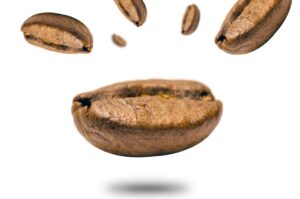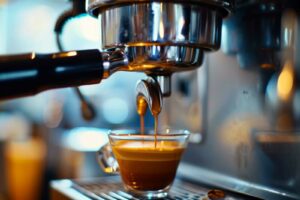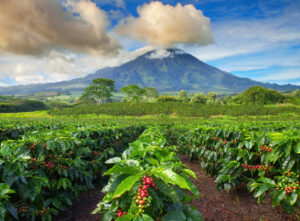Why is Water Temperature Important When Brewing Coffee?
Coffee is not just a beverage, it is a way of life for many people. It is the fuel that keeps you going in the morning, the comfort that makes a rainy day bearable, and the indulgence that brings people together. With coffee being such a crucial part of our daily routine, it is essential to understand the factors that affect its taste and quality. One of the most critical aspects of making great coffee is how hot the water is.
1. Why is water temperature important?
Water temperature has a significant impact on how coffee extracts during the brewing process. Coffee extraction is the process of dissolving the soluble compounds in coffee beans with hot water. The extraction process is affected by the temperature of the water, which determines how many compounds dissolve and how quickly. Using the appropriate water heat level results in optimal infusion, which results in a delicious and balanced cup of coffee.
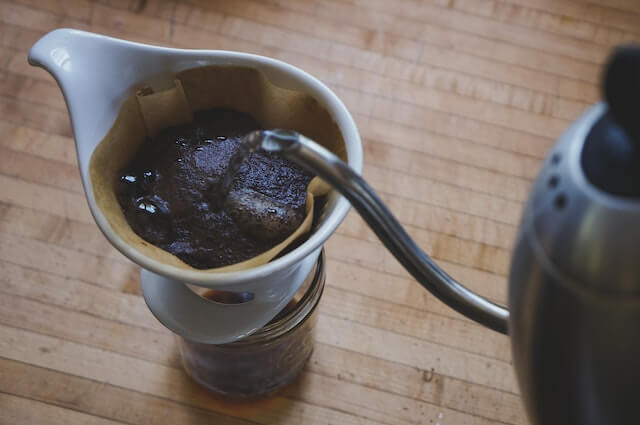
2. Temperature affects flavor
Water that is near boiling point can damage the flavor of coffee, and water that is too cold will not extract the full flavor profile. When coffee is brewed, the hot water dissolves compounds, including acids and oils, that impact the flavor. The temperature level of the water determines which flavors are extracted and how intensely. Hotter water will dissolve more bitter compounds and higher acidity, while cooler water will not dissolve enough flavor and create a weak cup of drink. Using the best water heat level ensures that the flavors are balanced.
3. Tips to get it right
Now that you know how important water heat level is to making coffee, you need to know how to get it right. The best water temperature for brewing coffee is 195-205°F (90-96°C). If the water is boiling, remove the kettle from the heat for a minute or two and then pour it over the coffee grounds. You can also use a kettle with a temperature gauge to ensure precision. Remember, the water heat level affects not only the taste but also the aroma and texture of the coffee, so it is worth investing in a good kettle.
4. Impact of water quality on temperature
Water quality is critical when you make your coffee. The quality and taste of tap water will vary depending on where you live. Some tap water contains minerals that affect the taste of it and can even damage your coffee maker. We recommend using filtered water to ensure consistent flavor and quality. You can use bottled water, but make sure to read the label to check the mineral content.
What are the Consequences of Using the Wrong Water Heat Levels?
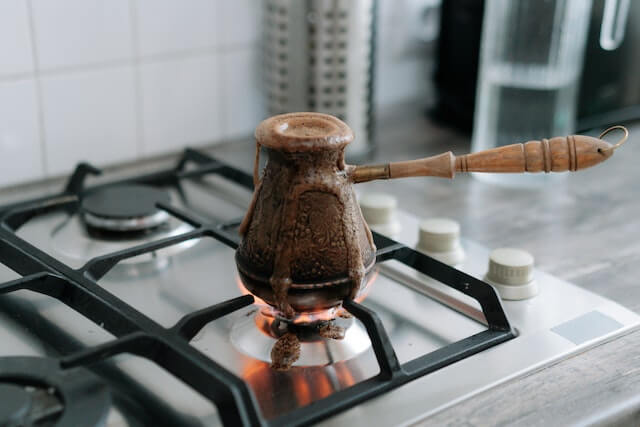
We take our morning brew seriously. We carefully grind the beans, measure out the perfect amount of coffee, and use a coffee maker that fits our specific preferences. But one overlooked aspect of coffee making is the temperature of the water used. Whether you use hot or cold water, the temperature plays a crucial role in the taste and quality of your drink. let us explore the consequences of using too cold or too hot water for your coffee and what you can do to avoid them.
1. Using Hot Water that is Too Hot
When it comes to cafe brewing, using water that is too hot can cause a burnt and bitter taste. Boiling water can over-extract coffee powder and cause it to release unpleasant flavors. While most cafe machines have a temperature range of 195 to 205 degrees Fahrenheit, it’s best to use water with a lower temperature to avoid a burnt taste. Using hot water that’s too hot can also kill the natural flavors and aromas in your cafe, leaving it with a dull taste.
2. Using Cold Water
If you’re using cold brew for your drink, you might notice that it is taking longer to dissolve, producing a less flavorful cup. Cold water slows down the brewing process, which can result in an under-extracted and weak taste. Your drink may also develop sour notes due to the unbalanced extraction. Additionally, using cold water will also result in a low caffeine concentration, which can be a deterrent if you’re looking for a morning pick-me-up.
3. Using Hot Water that is Too Cold
When you make a cup of joe with water that’s not hot enough, you will get a cup of under-extracted coffee, leaving you with a weak and sour taste. This is because the coffee doesn’t brew fast enough to extract the flavor and caffeine. Water that’s too cold can also create a bitter taste if you have hard water. The coffee acidity may increase, giving your brew a vinegar-like taste.
4. Using the Right Water Temperature
Using the correct temperature of the water is essential to producing a perfect cup of hot coffee. The sweet spot is between 195 and 205 degrees Fahrenheit. At this temperature, the ground beans are evenly extracted, and the drink has the perfect balance of flavors and aromas. At the ideal temperature, coffee taste smoother and richer, with no burnt or bitter notes. Coffee at the right temperature can help unlock the full potential of the coffee beans, resulting in a better brew.
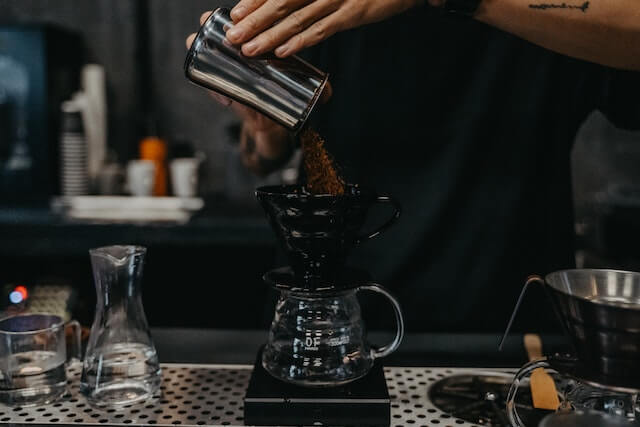
What Brew Methods Are Affected by Water Heat Levels?
- Pour-Over – Pour-over brewing involves pouring hot water over ground coffee, which then filters through a paper or metal filter into a carafe or mug. The water heat levels for this method should typically be between 195°F and 205°F (90°C and 96°C). Too low of a temperature can result in under-extraction, leading to a weak and sour taste. On the other hand, too high of a temperature can cause over-extraction and create a bitter flavor.
- French Press – This method is a popular immersion brewing method where coffee grounds are steeped in hot water for several minutes before being separated using a plunger and metal filter. Like the previous method, the perfect water temperature for French press brewing is between 195°F and 205°F (90°C and 96°C). Maintaining the correct temperature ensures proper infusion, resulting in a full-bodied and well-rounded cup of joe.
- AeroPress – This method is a unique brewing device that combines elements of both immersion and pressure brewing. Water heat levels play a significant role in AeroPress brewing, with the recommended range being slightly lower than other methods, around 185°F and 195°F (85°C and 90°C). This lower heat level helps prevent over-extraction and bitterness, producing a smooth and balanced cup of delicious drink.
- Espresso – Espresso is a high-pressure brewing technique that forces hot water through finely-ground beans of coffee. The ideal coffee brewing temperature for espresso machines usually falls between 195°F and 205°F (90°C and 96°C). However, some specialty espresso drinks, like ristretto, may require slightly lower temperatures. Consistent water heat levels is critical for achieving the perfect balance of flavor, acidity, and body in an espresso shot.


